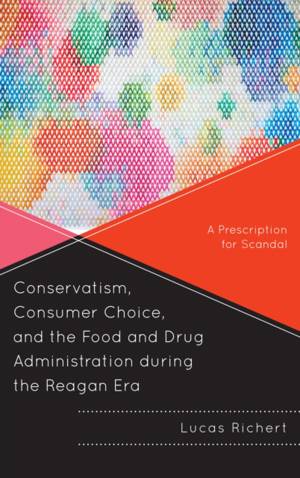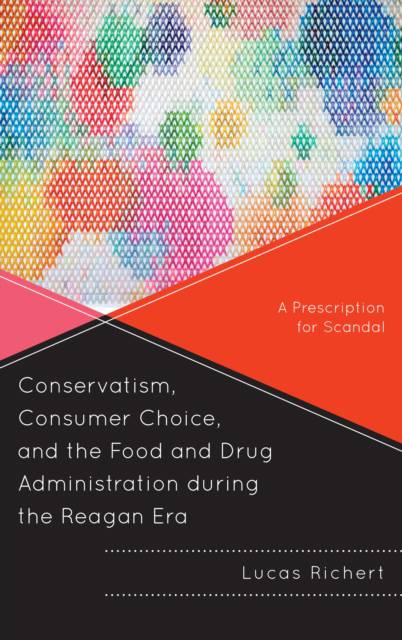
Bedankt voor het vertrouwen het afgelopen jaar! Om jou te bedanken bieden we GRATIS verzending (in België) aan op alles gedurende de hele maand januari.
- Afhalen na 1 uur in een winkel met voorraad
- Gratis thuislevering in België
- Ruim aanbod met 7 miljoen producten
Bedankt voor het vertrouwen het afgelopen jaar! Om jou te bedanken bieden we GRATIS verzending (in België) aan op alles gedurende de hele maand januari.
- Afhalen na 1 uur in een winkel met voorraad
- Gratis thuislevering in België
- Ruim aanbod met 7 miljoen producten
Zoeken
Conservatism, Consumer Choice, and the Food and Drug Administration During the Reagan Era
A Prescription for Scandal
Lucas Richert
Paperback | Engels
€ 101,95
+ 203 punten
Uitvoering
Omschrijving
In the last quarter of the 20th century, politicians in Washington, as well as interest groups, regulatory policy makers, and drug industry leaders were forced to confront the hot-button issue of pharmaceutical regulation. The struggle always centered on product innovation, consumer protection, and choice in the free market. As the American economy stuttered in the late 1970s, the stakes were extremely high for the powerful drug industry and the American public. At the center of this drama was the Food and Drug Administration, which was censured from both the left and right of the political spectrum for being too strict and too lenient in the application of its regulatory powers. Lucas Richert explores the FDA, drugs, and politics in the context of the watershed Reagan era, a period when the rhetoric of limited government, reduced regulation, and enhanced cooperation between businesses and U.S. regulatory agencies was on the ascent.As he investigates the controversies surrounding Laetrile, Reye's Syndrome, Oraflex, patient package inserts, diet pills, and HIV/AIDS drugs, Richert argues that the practical application of conservative economic principles to the American drug industry was A Prescription for Scandal.
Specificaties
Betrokkenen
- Auteur(s):
- Uitgeverij:
Inhoud
- Aantal bladzijden:
- 260
- Taal:
- Engels
Eigenschappen
- Productcode (EAN):
- 9780739194645
- Verschijningsdatum:
- 18/04/2016
- Uitvoering:
- Paperback
- Formaat:
- Trade paperback (VS)
- Afmetingen:
- 152 mm x 229 mm
- Gewicht:
- 344 g

Alleen bij Standaard Boekhandel
+ 203 punten op je klantenkaart van Standaard Boekhandel
Beoordelingen
We publiceren alleen reviews die voldoen aan de voorwaarden voor reviews. Bekijk onze voorwaarden voor reviews.












